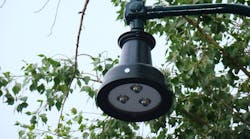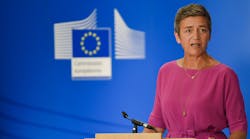EcoSense Lighting has acquired Journée Lighting, while MaxLite has filed a patent infringement suit against ATG Electronics, and Boston University has won an IP action against several Taiwan players in the LED and SSL sectors.
EcoSense and Journée
The EcoSense acquisition of Journée is certainly a good fit from the perspective that the respective product lines have little overlap, and EcoSense can establish an immediate presence in down and track lighting. “Journée’s specifier-grade product portfolio is a great complement to our brand,” said Mark Reynoso, CEO of EcoSense. “Further, their significant IP portfolio will enable us to expand our product offering in interesting ways.”
Journée certainly has a legacy of innovation across the luminaire system. For example, the company developed what became the Infusion modular LED light engine that Current, Powered by GE (formerly GE Lighting) uses in some luminaires and offers to other lighting manufacturers. GE acquired that technology from Journée back in 2009. GE introduced luminaires using the modules, with the addition of Zhaga compatibility, beginning in 2013.
It’s unclear whether Journée still owns any IP rights relative to the internals of a modular light engine, but the company has continued to use the Infusion modules. Moreover, the company patented a modular snap-in driver design back in 2013, targeting field replaceability in the driver to match the modular light engine.
MaxLite
Moving to IP battles related to LED business, MaxLite didn’t specify in its announcement the specifics of alleged infringement against ATG. But MaxLite said ATG had used MaxLite proprietary information obtained from the former MaxLite employees to “to enhance ATG’s products, divert business to ATG, and solicit MaxLite’s customers and suppliers for the benefit of ATG.”
“Whether it involves ATG, or any other company or individual, we will not tolerate violations of our Proprietary Information Agreements, IP rights, or trade secrets,” said MaxLite general counsel Zvi Raskin. “We will continue to take a strong stance against violators and will take all steps necessary to protect MaxLite’s confidential and proprietary information and know-how, painstakingly developed over more than two decades, and to ensure that such information and know-how is not compromised.”
Earlier this year, MaxLite found itself defending a claim by Lunera Lighting that MaxLite and others had infringed the Helen lamp meant to replace compact fluorescent lamps with no need to remove the ballast. We have not heard news of any resolution in that case.
Boston University
In other LED legal updates, Boston University has won a major award in the action against Epistar, Everlight Electronics, and Lite-On Technology. The university had originally filed suit against a far longer list of players in the packaged LED and SSL sectors. But most of those companies entered cross-licensing agreements with Boston University involving patents covering LED technology developed by Theodore Moustakas, College of Engineering Distinguished Professor of Photonics and Optoelectronics Emeritus.
Presumably, the three companies on the losing end of the action, all from Taiwan, had refused to enter a licensing agreement. Now a jury has awarded Boston University nearly $13.7 million in damages. Moreover, the university said that because the infringement was found by the jury to be willful, the award could yet be doubled or tripled.






